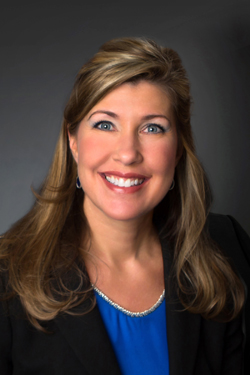Effective Patient Advocacy Starts with Strong Relationships
Patient advocates rely on meaningful relationships with their patients to ensure they can meet all of their logistical and healthcare needs.

Source: Thinkstock
When a patient is diagnosed with a serious chronic or life-threatening condition, more changes than just her health status. These patients often face financial, logistical, and bureaucratic challenges to obtaining quality care, and need strong relationships with patient advocates to mediate these problems.
Patient advocates are organizations or individuals who work on behalf of patients to help them coordinate their care, access prescribed treatments, and handle other logistical problems. According to Beth Moore, Executive Vice President of Corporate Communications at the non-profit Patient Advocate Foundation (PAF), these issues are often woven together to create one large, compound challenge.
“We continue to see patient issues become increasingly complex,” Moore said in an interview with PatientEngagementHIT.com. “Data reflects that most of our cases have two to three unique issues that they report.”
Like Russian nesting dolls, each patient challenge reveals several others. Patients who say they can’t afford their treatments might actually have trouble getting transportation to the clinic, for example, or the red tape of Medicaid and Social Security that prevents them from securing financial stability.
In order to balance patient needs and ensure they receive the necessary support, patient advocates need to root all of their efforts in a meaningful relationship with the patient.

“Our case managers work one-on-one to ensure that a patient has a seamless experience. We peel back the needs and evaluate the patient in a holistic manner,” she explained. “It’s a multi-faceted process, but it’s our goal to look at the entire patient because we understand how the practical issues snowball and domino into one another.”
Building the relationship and identifying patient needs starts at the first interaction, Moore said. Patients usually end up at PAF by contacting the foundation themselves or through a referral from another patient-focused group. During that first phone call, PAF’s medical intake specialists work to identify the root cause of a patient’s challenges.
“A patient comes to us with a particular issue, such as not being able to afford transportation to and from the doctor,” Moore said. “We will identify that as their primary issue, but during the course of that conversation, we will also ask them what kind of insurance they have or we’ll try to assess whether or not there are other areas that they are struggling with. It’s through these medical intake specialists that we really get to the root of the problem.”
Medical intake specialists ask patients about their medical coverage and their ability to afford their premiums. They also assess the patient’s diagnosis, disability status, and ability to access prescribed therapies or durable medical equipment.
From there, the specialists refer patients to the appropriate case manager, such as a nurse case manager, social worker, certified coder or biller, or Medicaid specialist. These case managers work on a specific case from start to finish, allowing them to build relationships with patients and dig deeper into their overall healthcare needs.
“Sometimes, unfortunately, we uncover issues as we go along,” Moore said. “Patients might come to us and say that they can’t afford their medications, which is a very common issue. Then, once the case manager becomes involved, we find out that it’s not that they can’t afford the medication, it’s that the medication requires a prior authorization and the insurance company denied the authorization.”
In those situations, case managers can take a new and more efficient pathway to ensure the patient gets the appropriate prescribed medication. Instead of working to find external funding for the patient’s treatment, the caseworker will begin an appeals case with the payer’s prior authorization body.
According to Moore, all of these efforts occur in partnership with the patient. Working as a team, the case managers advocate on behalf of their patient, instead of pushing the patient onto the next piece of the bureaucratic puzzle.
“We don’t just give the patient telephone numbers,” Moore explained. “We don’t just give a handful of resources and expect the patient to move forward with making those calls. We do third party calls and we navigate these systems on the patient’s behalf.”
Despite these efforts, there are still challenges that PAF cannot yet overcome, Moore explained. Sometimes a health plan simply limits a certain service, or completely excludes a treatment and bars patients from any access.
And while PAF case workers try to tap into private funding opportunities or resources at other patient advocacy groups, these financial resources are waning.
“We continue to see resources shrink,” Moore noted. “Financial assistance programs are no longer there, or they’ve had to scale back on their income requirements or eligibility requirements, so a lot of our patients are no longer eligible. That’s a really tough thing.”
Those challenges don’t suppress PAF’s efforts, however. The organization’s framework allows case managers to work with patients from start to finish, and doesn’t limit the amount of outreaches they conduct to solve a problem.
“We’re able to work with the patient as long as it takes and we have the autonomy to handle all of their needs. We’re not told we can only connect with them five times, or that we can only work with them on one kind of issue,” Moore said. This allows case managers to continue to chip away at a problem, accessing various resources and developing new plans for patients.
And as both financial and personnel resources continue to dwindle, Moore said PAF’s work and mission will be even more critical for patients.
“At PAF, we receive the hardest of the hard. Patients usually make it to us when they’ve exhausted everything else because their cases are hard and time-consuming,” she concluded.
“As we continue to see the social work departments and social services supports diminish in oncology practices, and hospital settings universally, the services that we provide have become even more important.”
